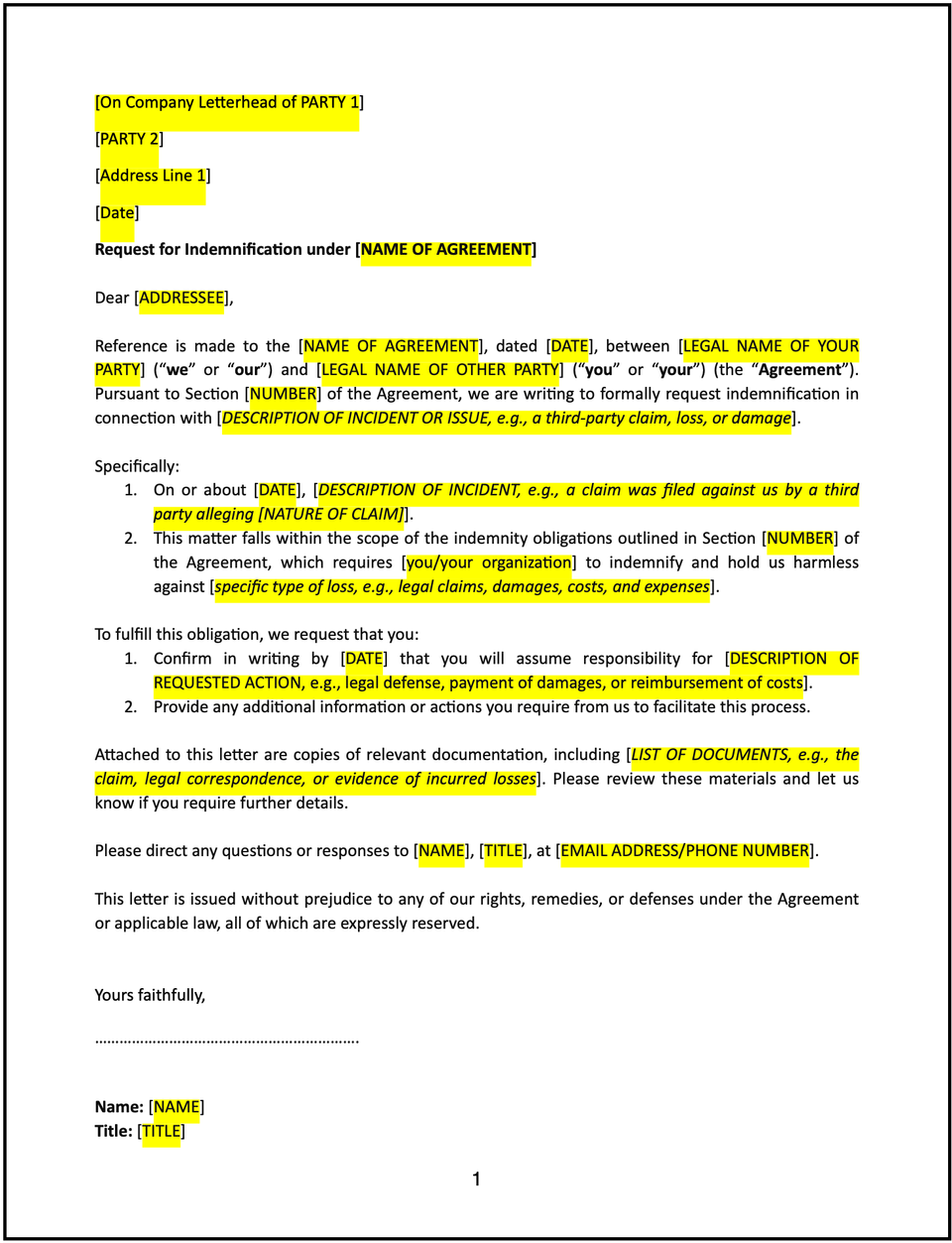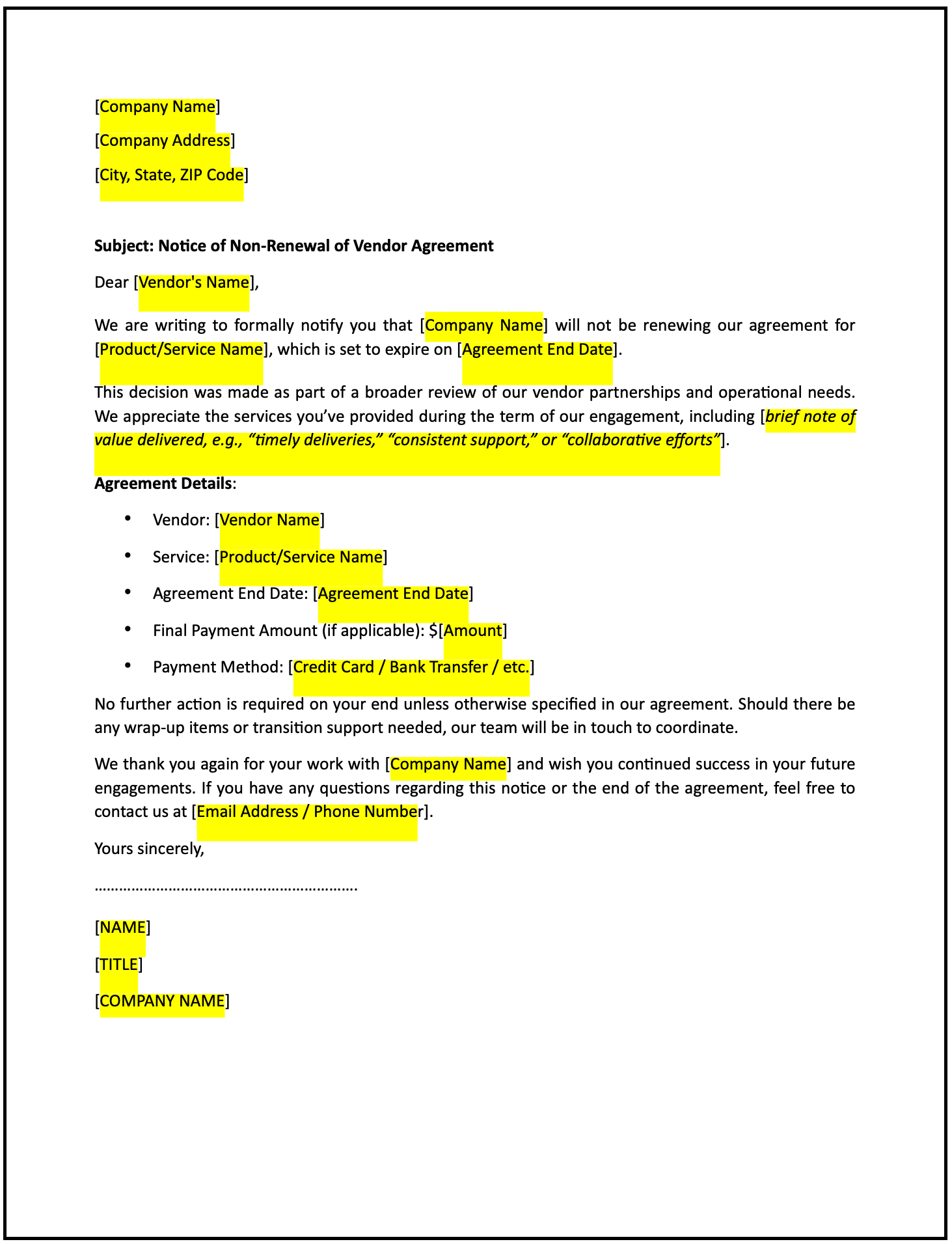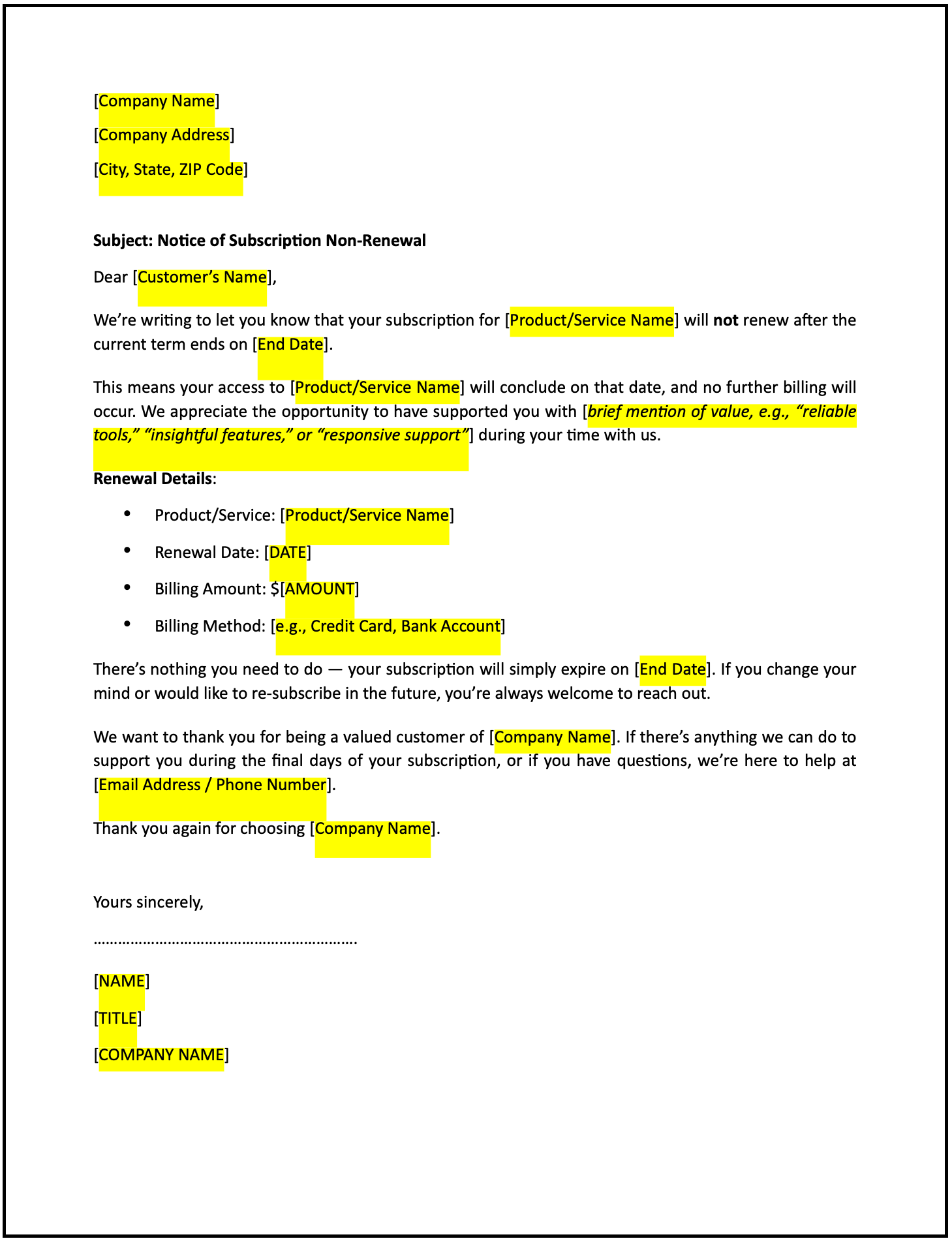Letter requesting indemnification under contract: Free template

Letter requesting indemnification under contract
A letter requesting indemnification under a contract is a formal way to invoke a contractual indemnity clause and seek compensation or coverage for specified losses or liabilities. This letter provides a professional approach to outline your claim, reference the agreement, and request resolution.
How to use this letter requesting indemnification under contract
- Open with context: Start by referencing the contract and the specific indemnity clause that applies to your request.
- State the claim: Clearly outline the event or circumstances triggering the indemnification and the losses or liabilities incurred.
- Provide supporting details: Include relevant evidence, such as invoices, incident reports, or other documentation substantiating your claim.
- Reference the contract terms: Highlight the specific clause that obligates the other party to provide indemnification.
- Request indemnification: Explicitly request compensation or coverage as outlined in the agreement.
- Maintain a professional tone: Ensure the letter is respectful, factual, and focused on resolution.
- Offer further engagement: Indicate your willingness to discuss the matter or provide additional information if needed.
- Provide contact information: Include details for further communication or to address any related queries.
Benefits of using a letter requesting indemnification under contract
This letter template ensures a structured and professional way to assert your indemnification rights while fostering resolution and maintaining professionalism. Here’s how it helps:
- Protects your interests: Clearly invoking contractual rights demonstrates your commitment to defending your position.
- Encourages compliance: Citing specific clauses and providing evidence supports the legitimacy of your claim.
- Reflects professionalism: A well-crafted request reinforces your credibility and commitment to fair dealings.
- Reduces disputes: Clear communication minimizes misunderstandings and promotes resolution.
- Supports documentation: Creating a formal record of your request is valuable for future reference or legal proceedings.
Tips for writing an effective letter requesting indemnification under contract
- Be specific: Clearly reference the contract, relevant clause, and circumstances triggering the indemnification.
- Use professional language: Maintain a respectful and factual tone to encourage constructive communication.
- Support with evidence: Include documentation that substantiates your claim and aligns with the contract terms.
- Reference the agreement: Directly cite the indemnity clause to reinforce your position.
- Keep it concise: Focus on the key points without overwhelming the recipient with unnecessary details.
Frequently asked questions (FAQs)
Q: What details should I include in this letter?
A: Include a reference to the contract, the indemnity clause, the triggering event, supporting evidence, and your request for indemnification.
Q: Should I personalize the letter?
A: Yes, addressing the recipient directly ensures clarity and demonstrates attentiveness.
Q: Who typically receives this letter?
A: Send the letter to the party obligated under the indemnity clause, such as a contractor, vendor, or partner.
Q: How formal should this letter be?
A: The tone should be highly professional and factual, focusing on clarity and assertiveness.
Q: When should this letter be sent?
A: Send the letter promptly after identifying the event or circumstances that trigger the indemnification clause.
Q: Can this letter include a proposed resolution timeline?
A: Yes, suggesting a timeline for resolution can demonstrate efficiency and encourage prompt action.
Q: Is acknowledgment from the recipient required?
A: While not mandatory, requesting confirmation of receipt or compliance ensures the issue is addressed effectively.
This article contains general legal information and does not contain legal advice. Cobrief is not a law firm or a substitute for an attorney or law firm. The law is complex and changes often. For legal advice, please ask a lawyer.


